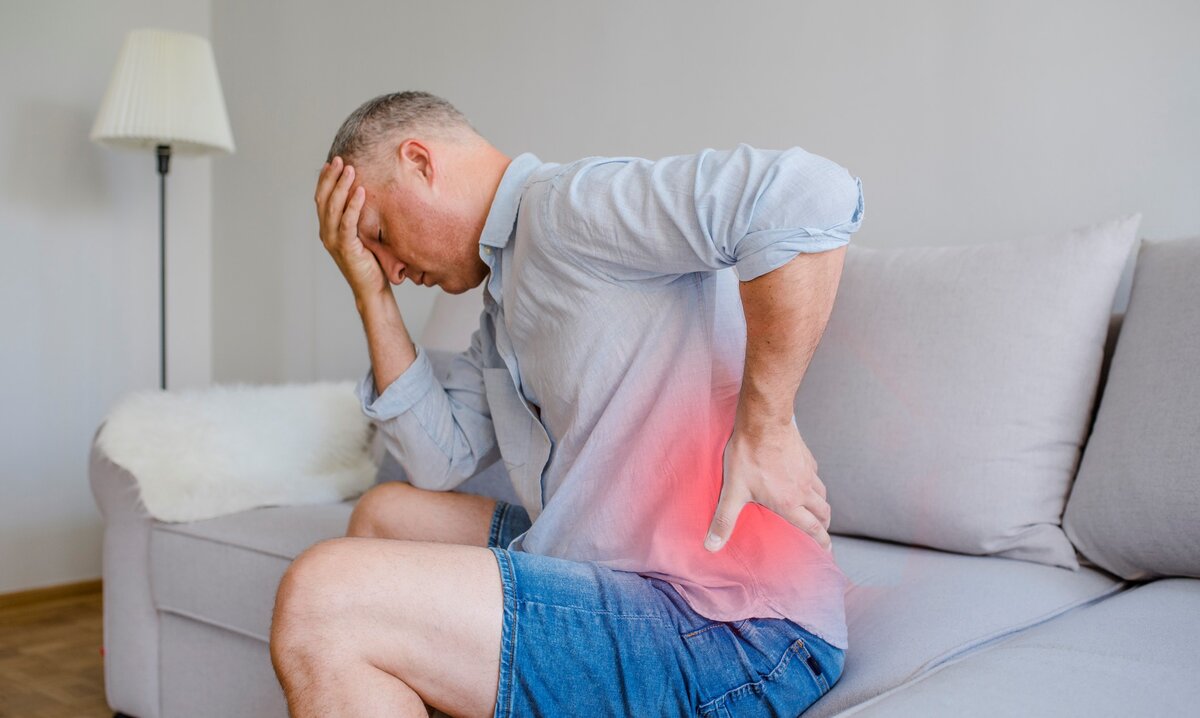Millions of people across America deal with some form of pain almost every day. Because of this, many people often neglect their chronic pain by simply trying to ignore it. A majority of people who deal with consistent pain struggle to find a medication that works for them, are worried about forming a dependency or are sometimes unsure of where to begin in the first place.
While pain management can seem intimidating and sometimes even hopeless– it doesn’t have to be. There are options out there that will work for you. Chronic pain is unique to each individual, so your medication should be, too.
Here at the Compounding Pharmacy of America, we understand that your pain is specific to you. We know that most common oral pain relief medications might not work for the pain that you are dealing with. That’s why we offer compounding services for a multitude of non-addictive medications so that you can get an accurate, safe treatment that works for you.
Here is everything you need to know about common pain management medications, compounding medications, and why compounding a topical pain cream might be the best option of pain relief for you.
Medications for Pain Management That Are Non-Addictive
The most common form of pain treatment for most people is an over-the-counter oral medication such as:
1. Acetaminophen
Acetaminophen is one of the most common over-the-counter medications for pain management. Known best for relieving pain and aiding in reducing fevers, acetaminophen has little to no side effects. It is a great first option when it comes to common pain such as headaches, backaches, or general pain. One of the only downsides of acetaminophen is that it is not an anti-inflammatory, meaning it cannot help with reducing swelling.
2. Ibuprofen
Ibuprofen is another popular choice for over-the-counter pain relief medications. It is categorized as an NSAID, which stands for non-steroidal anti-inflammatory drugs. Ibuprofen can help with a wide variety of pain management in patients, from sprains to headaches and even soft tissue injuries. Because Ibuprofen is an anti-inflammatory, it can also help reduce swelling and other inflammation throughout the body. There are some side-effects of Ibuprofen when large amounts are taken regularly, such as stomach issues. Aside from that, it is a great first choice for those dealing with different kinds of general pain and inflammation.
3. Other NSAIDs
NSAIDs are the safest drug to take when it comes to long-term use. While Ibuprofen is probably one of the most popular NSAIDs on the market today, there are a multitude of other kinds to choose from, too. NSAIDs can relieve mild to moderate pain caused by tissue damage or general aching. They are often used for headaches and backaches, as well as sprains and even arthritis. Some other commonly known NSAIDs that are over-the-counter are Aspirin and Motrin.
Shortcomings of Common Oral Pain Management Medications
There are a variety of different methods that can be used to help you treat your pain. The most common pain management method by far is the use of oral medication. But just because oral medications are the most common choice, that doesn’t mean they work well for everyone. Here are just a few of the shortcomings that people who deal with chronic pain have found in common oral pain management medications:
Not Specific to Your Pain and Its Needs
Many non-addictive pain medications are over-the-counter, meaning that they are meant for a wide variety of people to safely use. Because of this, these medications don’t often work as well for people with chronic pain because they are general pain relievers. Many people that deal with chronic pain have specific kinds of pains in different areas and need to be able to target those problem areas as best as possible. Sometimes, taking an oral medication that takes a while to dissolve in your stomach isn’t always the best choice.
Drug Dependency on Opioids
One of the largest obstacles people face while trying to manage their pain is the threat of forming a drug dependency if they get prescribed opioids. Unfortunately, opioids are still one of the most commonly prescribed pain management medications for most people that deal with intense pain. Opioids are much stronger than over-the-counter medications because they are able to target the opioid receptors in your brain in order to provide any heavy pain relief that is needed. The problem with opioids is that people can easily form dependencies on them, especially if they have to take them for a long period of time. This is obviously an issue for those with consistent pain because they are looking for a medication or form of treatment that will help them long-term.
Unwanted Side Effects
Most opioids and even some over-the-counter pain relief medications can produce negative side effects. Opioids are known to make you drowsy, dizzy, and irritated, particularly when dosages are high. Opioids also produce withdrawal effects when someone who has formed a dependency on them stops taking them. Even some common non-addictive pain medications can cause unwanted side effects, especially if taken for a long period of time in large amounts. Many common pain medications that you can buy over the counter have similar negative side effects of stomach problems or bleeding in worst-case scenarios.
Compounded Medications
Compounding medications is the process of making a unique treatment for you and your needs by adjusting, altering, or combining different medications to fit your needs. This process gives the patient much more control of their medications and how they are taken.
For example, compounding can turn an oral pill into a liquid form for someone who may struggle to swallow pills. Compounding can even adjust dosages, provide flavor or combine formulas, depending on what your needs may be. One popular and beneficial compounding service we provide here at the Compounding Pharmacy of America is the creation of a topical cream for your pain relief. Transdermal creams are becoming more and more popular with those who struggle with constant pain.
Compounding Medication for Pain Management
Compounding medications for pain management is extremely helpful in many ways because it allows the patient to have more control over their treatment. Here are just a few ways that compounding medication can help you in your pain management journey:
Treatment Specific to Your Pain and Its Needs
Each individual person experiences pain differently. Because of this, it might be difficult for a general over-the-counter oral medication to give you the specific pain relief you need. By compounding your medication to create a unique treatment that is right for you, your method of treatment is going to be much more accurate and help you combat your pain.
Can Make Alternative Forms of Medicine (Topical Creams and Transdermal Gels)
On top of that, compounding medications can combat some of the shortcomings of many common oral pain relief medications. Oral medications often take a long time to be processed by the body. One method of pain relief that is becoming increasingly popular throughout the chronic pain community is the use of transdermal pain medications because they are so easy to use and fast-acting. These topical creams and gels are able to target acute pain at the exact problem spot because you apply them externally.
Medications Can Be Combined
Another great reason to try compounding services for your pain relief is that you can combine your medications. Many people, especially those who deal with chronic pain, take multiple different medications, and combining them is extremely helpful. We can even combine common pain relievers to make sure that you have a medication that will work to provide you relief.
Topical Pain Management Medications
Here at the Compounding Pharmacy of America, we specialize in compounding services that can create topical creams and transdermal gels that are specific to you in order to help relieve your pain. Topical creams and gels are just an alternative way to deliver medication to your body. When creating a topical pain relief medication for you, we can combine medications, adjust dosages, and create specific formulas to make sure you receive a treatment that works to provide you relief.
Topical pain management medications have become increasingly popular for those who struggle with both acute and chronic pain because they work so well. It’s quick, easy, and can be used anywhere. Here are just some of the benefits of switching to a transdermal gel or topical cream to help treat your pain:
Targets Exact Area of Pain
Topical pain management medications can target the precise location of your pain, unlike an oral medication that is dissolved in your stomach. They are applied externally, so you can make sure you apply your transdermal gel to the exact location of your pain. Because of this, you get accurate, fast-acting pain relief exactly where you need it.
Much Faster Acting Than Other Common Medications
Unlike oral medications that need to be swallowed and then processed by your body, topical pain relievers are applied externally and then quickly absorbed through your skin. This allows the medication to work much faster than waiting for a pill to dissolve in your stomach and then begin working. This also allows you to use the medication a bit more, as your body absorbs it and uses it faster than a regular capsule or pill pain reliever.
Higher Concentration
Another great benefit of topical creams for pain management is that they are often a much higher concentration of medication. This is so that the medication is absorbed through your skin quickly, allowing it to be fast-acting and provide the much-needed relief the user needs.
Reduced Issues and Misuse
With oral medications such as pills, it can often be easy to misuse them. Whether you accidentally take them at the wrong time of day or you take the incorrect amount, those problems will be erased when using a topical cream instead. Many oral medications can cause unwanted side effects if used incorrectly, too, unlike a topical cream. This form of pain medication is simple and effective.
What Kind of Pain Can Topical Creams Be Used For?
We can create a topical cream or transdermal gel for a wide variety of pain that you might be experiencing.
Peripheral Pain
Peripheral pain is caused by damage to the nerves outside of the brain and spinal cord. This damage can cause numbness, tingling in your fingers, toes and other areas of your body, as well as muscle weakness.
Peripheral pain includes:
- Rheumatoid Arthritis / Osteoarthritis
- Tension Headaches
- Degenerative Joint Disease
- TMJ
- Chronic Post-Operative Pain
Neuropathic Pain
Neuropathic pain is a chronic, debilitating, and often life-threatening condition causing pain without obvious cause. The pain comes from damage to the nerves that transfer information between the brain and spinal cord from the skin, muscles and other parts of the body. Individuals experiencing the pain often say it creates a burning sensation and the area is sensitive to touch.
General/Acute Pain
There are over 60 different types of acute pain, each with different causes. It might start in response to an injury, such as a cut or broken bone, but can also be causes by a fever, infection or craps. It’s often sharp in quality, but generally doesn’t last longer than 6 months or long after the underlying cause has been addressed.
Spinal Pain
Back pain doesn’t have to stem from an accident or injury, pain can come from any number of reasons, including overuse from working out, sleeping in a bad position or simply sitting too long.
Other more serious back issues include:
- Herniated Discs
- Bulging Discs
- Degenerative Discs
- Spinal Stenosis
- Scoliosis
Your Pain and What You Should Do About It
Constant pain is nothing to take lightly. Though pain management can seem daunting, there are methods out there that can and will work for you.
Compounding medications is one of the best ways to ensure that you get a medication that is right for you and your needs. Don’t let all of the different types of treatments and medications intimidate you. At the Compounding Pharmacy of America, we can help create the perfect, safe pain management medication for you. If you struggle with consistent pain, try switching over to a compounded topical cream or transdermal gel for fast, deep relief.
Your pain is specific to you, and your medication should be too. Contact The Compounding Pharmacy of America today to inquire about getting your own unique pain relief treatment today.
Editor’s Note: This article was originally published May 24, 2017 and has been updated July 6, 2021.
Chief Operating Officer, The Compounding Pharmacy of America
Matthew Poteet, Pharm.D. graduated with Honors from Lee University with a Bachelors of Science in Biological Science. After his undergraduate training, he completed the Doctor of Pharmacy program at Mercer University Southern School of Pharmacy, graduating in 2004. Dr. Poteet has spent much of his pharmacy career on staff at two of the most prestigious academic teaching hospitals in the Southeast; Emory University in Atlanta and Vanderbilt University Medical Center in Nashville. At these institutions he received extensive experience and training in sterile products compounding.
He returned home to East Tennessee in 2010, where he has held the position of Pharmacy Director at two sterile products pharmacies in Knoxville. Matthew lives in Knoxville with his wife, Chris. Dr. Poteet is Tennessee’s first Board Certified Anti-Aging Pharmacist by the American Academy of Anti-Aging Medicine.






 Subscribe to Our Newsletter
Subscribe to Our Newsletter


